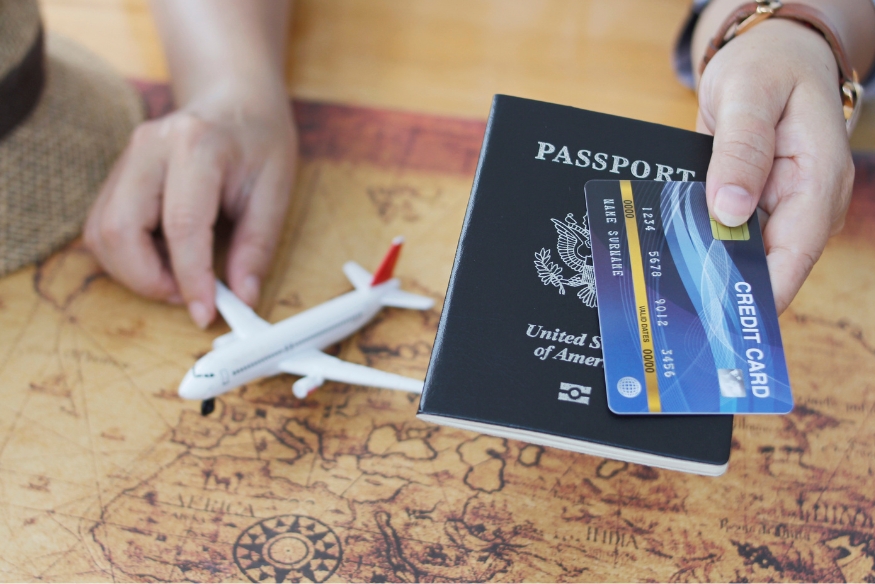Travel credit cards have become a popular financial tool in today’s globalized world, offering enticing rewards, bonus points, and exclusive travel benefits. Yet, they often come with higher annual fees and other extra costs that can cause hesitation. Are travel credit cards really worth the extra expense? In this article, we’ll break down the advantages and potential drawbacks, providing you with a balanced perspective to help you decide if a travel rewards card is right for your lifestyle.
Whether you’re a globe-trotting adventurer or a frequent business traveler seeking comfort and convenience on the go, this guide is designed with approachable language, humor, and practical advice. We’ll cover how travel credit cards work, the hidden costs that come with them, and tips for maximizing their benefits—empowering you to make smart financial decisions while enhancing your travel experiences.
What Are Travel Credit Cards?

Defining the Concept
Travel credit cards are specialized cards that offer rewards geared toward travel-related expenses. Unlike standard cashback or everyday credit cards, travel cards typically provide benefits like travel points or airline miles, priority boarding, lounge access, and travel insurance. Many cards also waive foreign transaction fees, which is a huge bonus when making international purchases.
Key Features:
- Reward Programs: Earn travel points, miles, or credits on purchases that can be redeemed for airline tickets, hotel reservations, or even car rentals.
- Bonus Categories: Often come with extra points for travel-related expenses such as flights, hotels, and dining.
- Travel Perks: Additional benefits may include airport lounge access, travel insurance, rental car coverage, and priority check-in services.
- Foreign Transaction Fee Waivers: A significant perk when spending money abroad, allowing you to avoid the typical 2-3% fee charged by many credit cards on international purchases.
Understanding these features is the first step in determining whether the benefits of a travel credit card align with your personal financial goals and travel habits.
The Benefits of Travel Credit Cards
Unlocking Exclusive Perks
Travel credit cards can provide a wide array of benefits that go beyond simply earning rewards points. Here are some of the main advantages:
1. Reward Accumulation
- Earning Points/Miles: Use your card for everyday purchases and earn points that can help cover the cost of flights, hotel stays, or other travel expenses.
- Welcome Bonuses: Many travel cards offer generous sign-up bonuses if you meet a minimum spending requirement shortly after opening your account.
- Bonus Categories: Earn extra points for travel and dining expenses, amplifying the rewards you get on purchases you’re already making.
2. Travel Perks and Protections
- Airport Lounge Access: Enjoy a comfortable environment before your flight, complete with complimentary Wi-Fi, refreshments, and quiet areas.
- Travel Insurance and Protections: Benefits such as trip cancellation insurance, baggage delay coverage, and rental car insurance can provide peace of mind during travel.
- Priority Services: Get faster check-in, priority boarding, and even expedited security screening in some cases, making your travel experience smoother.
3. No Foreign Transaction Fees
- Cost Savings Abroad: If you travel internationally, having a travel credit card that waives foreign transaction fees can save you a lot of money, as these fees can add up quickly when making purchases in a foreign currency.
4. Flexible Redemption Options
- Versatile Reward Redemption: Points or miles can be redeemed in various ways: for flights, hotel stays, gift cards, or even statement credits. Some programs even allow you to transfer rewards to partner loyalty programs for even greater flexibility.
Tip: To maximize benefits, always keep an eye on exclusive travel offers and promotions through your card issuer’s website or mobile app.
The Extra Costs: What Are You Paying For?
Understanding the Fees and Premiums
While the rewards and perks of travel credit cards sound enticing, they often come with extra costs that might not be immediately apparent:
1. Annual Fees
- High Annual Fees: Premium travel cards typically charge annual fees ranging from $95 to several hundred dollars per year. These fees are charged in exchange for the array of benefits and rewards offered.
- Value Consideration: If you use the card’s travel benefits frequently, the extra fee might be justified. Otherwise, the cost could outweigh the monetary gains from rewards.
2. Interest Rates and Penalties
- Higher APRs: Travel cards sometimes come with higher interest rates, meaning that if you carry a balance, you could end up paying significantly more in finance charges.
- Penalty APRs: Failing to make payments on time can lead to penalty rates, which may nullify the cost-saving benefits of your rewards.
3. Redemption Restrictions
- Complex Redemption Rules: Some reward programs may have blackout dates, limited seat availability for award travel, or points that expire if not used within a certain time period.
- Foreign Legibility: In regions with fluctuating currencies or less travel infrastructure, maximizing the value of travel rewards might be challenging.
Reminder: Always read the fine print regarding fees, interest rates, and redemption rules before committing to a travel credit card.
Who Can Benefit Most from Travel Credit Cards?
Matching the Card to Your Lifestyle
Not every traveler will benefit equally from a travel credit card. Here are some profiles to help you determine if a travel card is right for you:
The Avid Explorer
- Profile: People who travel frequently and can make regular use of travel perks like lounge access and travel insurance.
- Benefits: This group benefits greatly from accumulating rewards points that can be used for flights and hotels. They are more likely to overcome the cost of a high annual fee with frequent usage.
- Tip: Maximize points by charging travel expenses and utilizing all available bonus categories.
The Occasional Traveler
- Profile: Travelers who take one or two trips per year.
- Benefits: While the rewards may still be valuable, the high annual fee might not be justified unless the perks are used consistently.
- Advice: Consider a travel card with a lower annual fee or one that offers flexible benefits that can also be used for everyday purchases.
The Budget-Conscious Adventurer
- Profile: Individuals who love to travel but are very careful with their spending and avoid debt.
- Benefits: If you pay your balance in full every month, you can avoid high-interest charges while enjoying significant travel rewards.
- Tip: Choose a card with no foreign transaction fees and plan your travel around the card’s bonus offers to maximize rewards while keeping costs minimal.
Who Might Be Better Off with Alternative Options

When a Travel Credit Card Isn’t the Best Fit
There are scenarios where a travel credit card might not be the ideal financial tool for your situation:
1. Frequent Carrying of Balances
- Risk: If you regularly carry a balance from month to month, the high interest rates on travel credit cards can quickly negate any benefits gained from rewards.
- Suggestion: In this case, a lower-interest or fee-free card might be more appropriate to manage expenses without increasing your debt burden.
2. Infrequent Travelers
- Risk: If your travel is sporadic, you may not fully utilize the travel perks, and the premium annual fee could end up being an unnecessary expense.
- Suggestion: Consider a general rewards card that offers a well-rounded set of benefits without the high fees associated with travel-specific cards.
3. Those Who Prefer Simplicity
- Risk: Some travel credit cards have complex reward structures and redemption rules that can be confusing, especially if you prefer straightforward, easy-to-understand benefits.
- Suggestion: Opt for a more straightforward cashback card, ensuring that you remain in control of your finances without the added complexity.
Strategies for Maximizing Your Travel Credit Card
Tips to Make the Card Work for You
If you decide that a travel credit card aligns with your needs, there are several strategies you can implement to get the most out of it:
1. Pay Your Balance in Full
- Why It Matters: Avoid letting high-interest rates offset the rewards by ensuring you pay off your balance each month.
- Action: Set up automatic payments or use budgeting apps to stay on top of your expenses.
2. Optimize Spending Categories
- How to Maximize: Use your travel card for purchases in bonus categories such as airfare, dining, hotel bookings, and international purchases.
- Action: Keep track of your spending and adjust your habits to align with the highest reward-earning opportunities.
3. Leverage Introductory Offers
- Capitalizing on Bonuses: Take advantage of welcome bonuses by planning larger purchases or consolidating spending within the bonus period.
- Action: Make sure to meet any minimum spending requirements to unlock these lucrative rewards without overspending.
4. Utilize Partner Promotions
- Beyond Basic Rewards: Many travel cards offer additional promotions or partnerships with airlines, hotels, and rental car companies.
- Action: Regularly check your card issuer’s website, app, or newsletter for exclusive offers that can further boost your rewards.
5. Monitor and Adapt Your Strategies
- Stay Informed: The travel rewards landscape is constantly evolving with new offers and changing redemption rates.
- Action: Periodically review your card’s benefits and compare them with other available options to ensure you’re always getting the best value for your money.
Pros and Cons Table
Below is a summary table that highlights the advantages and disadvantages of travel credit cards:
| Aspect | Advantages | Disadvantages |
| Rewards Accumulation | Earn frequent flyer miles, points, and travel perks | High annual fees may offset rewards for infrequent travelers |
| Travel Perks | Exclusive benefits like lounge access and travel insurance | Complex redemption processes can be confusing |
| Foreign Transaction Fees | Many cards waive these fees, saving money abroad | Premium cards may have higher interest rates if balances aren’t paid in full |
| Flexible Redemption Options | Points can be redeemed for flights, hotels, and more | Points may expire if not used within a set timeframe |
| Annual Fees | Higher fees often come with a robust set of benefits | Can be a burden if benefits are underutilized or if you travel infrequently |
Frequently Asked Questions (FAQ)
Addressing Common Concerns
1. Are travel credit cards worth the extra annual fee?
It depends on your travel habits and spending. If you travel frequently and take full advantage of the rewards and perks, the annual fee can be more than offset by the travel savings and bonus experiences.
2. What happens if I don’t use the travel benefits?
If you rarely travel or don’t utilize the perks (such as lounge access and travel insurance), you might end up paying more in fees than what you get back in rewards. In that case, consider a lower-fee rewards card.
3. Can I transfer points to frequent flyer programs?
Many travel credit cards allow you to transfer points to partner airline or hotel loyalty programs. This flexibility can sometimes provide more value than redeeming points directly for travel expenses.
4. How do I avoid high-interest charges?
Pay your balance in full every month to avoid interest charges. The primary benefit of these cards comes from rewards and perks, not from carrying a balance.
5. What should I consider before applying for a travel credit card?
Review the card’s annual fee, rewards structure, foreign transaction fees, and any redemption restrictions. Assess your travel frequency and spending habits to ensure that the card aligns with your overall financial goals.
Conclusion

Travel credit cards offer an enticing array of benefits designed to enhance your travel experience—if used wisely, they can unlock exclusive perks, accelerated rewards, and substantial savings on international transactions. However, they also come with higher annual fees, potential for high interest rates, and sometimes complex terms that require careful management.
Ultimately, the decision on whether these cards are “worth it” depends on your personal lifestyle and habits. For the avid traveler who frequently visits airports, racks up significant travel expenses, and can pay off their balance monthly, the combination of free lounge access, travel insurance, and bonus points can far outweigh the extra costs. Conversely, if your travel is sporadic or if you’re prone to carrying a balance, the high fees and complex rewards structure may not provide enough value to justify the expense.
We hope this guide has given you a clear picture of what to expect from travel credit cards, helping you to assess if they match your financial and travel needs. Remember to always read the fine print, monitor your spending, and leverage promotions to maximize your benefits.
So, are travel credit cards really worth the extra costs? If you align your spending habits with the right card, practice responsible budgeting, and maximize available rewards, they can indeed be a powerful tool in your financial arsenal—enhancing your journeys and saving you money along the way.









